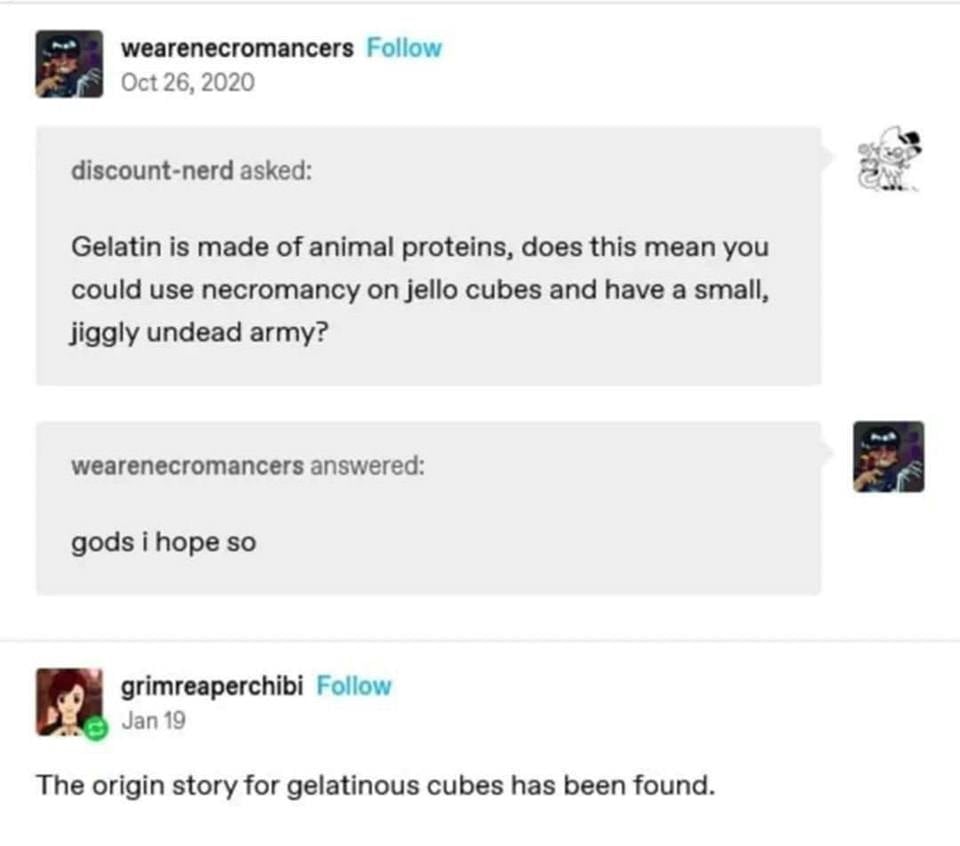this post was submitted on 05 Dec 2024
476 points (99.0% liked)
Microblog Memes
6036 readers
2795 users here now
A place to share screenshots of Microblog posts, whether from Mastodon, tumblr, ~~Twitter~~ X, KBin, Threads or elsewhere.
Created as an evolution of White People Twitter and other tweet-capture subreddits.
Rules:
- Please put at least one word relevant to the post in the post title.
- Be nice.
- No advertising, brand promotion or guerilla marketing.
- Posters are encouraged to link to the toot or tweet etc in the description of posts.
Related communities:
founded 1 year ago
MODERATORS
you are viewing a single comment's thread
view the rest of the comments
view the rest of the comments

Does this also work with oil and/or plastic? At which point an organic material is considered sufficiently removed from living?
DM here. I'm going to call this as a soft "yes", but it's gonna call for house rules.
Reanimation and necromancy in general, involves some enchantment of bits and pieces that had some mechanical basis in a living being. So we get the skeleton-zombie spectrum of reanimated remains. But break it down any further than that, and it becomes quite impossible - you don't see choking bone dust clouds or jaw-less skulls rolling about the dungeon. But I would say that the distinction between enchantment and necromancy is the basic stuff of the object's construction.
That said, one can enchant most anything with enough magic. So any inanimate object, even crude oil, could feasibly be turned into some kind of golem. That includes OP's jello-mold-as-gelatinous-cube monster. The plastic parts idea is inspired - a monster that is spawned from a city's midden (trash heap) would be truly dreadful and a sight to behold.
Also, there's this: